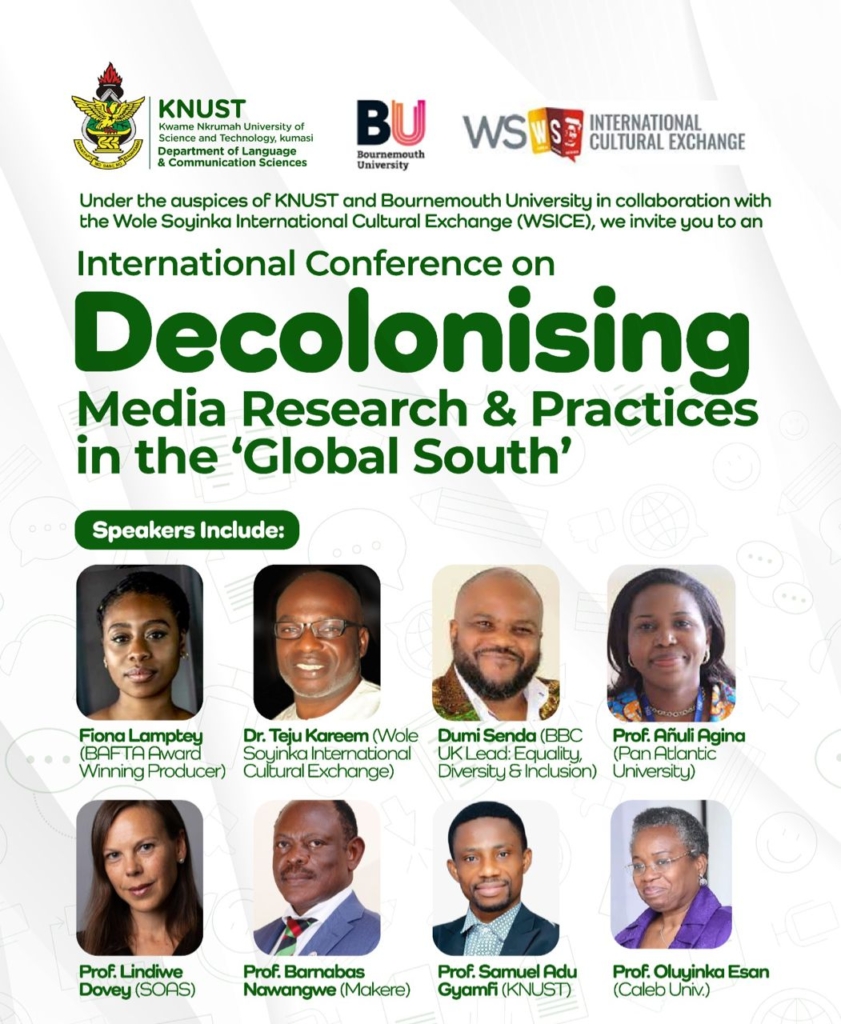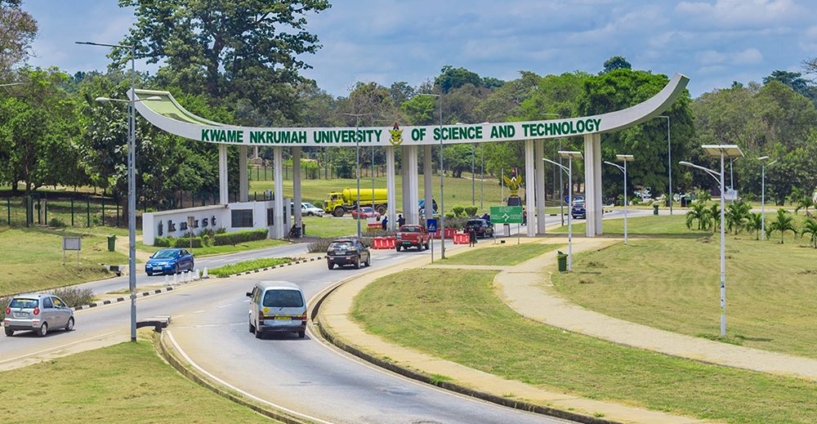
Audio By Carbonatix
The Kwame Nkrumah University of Science and Technology and its collaborators at the Bournemouth University and the Wole Soyinka International Cultural Exchange have begun a three-year project titled “Media Decolonisation Imaginary”.
The project which starts in 2024, is expected to end in 2026 after its in-person and virtual inaugural section in January.
The first day of the inaugural sections, facilitated by the collaborators, focused on “Tracking Africa’s Journey on Decolonisation” thus exploring nexuses between decolonisation, Intersectionality, globalisation, cosmopolitanism, neo-colonialism, transnationalism, and (re)appropriation.
The second day also focused on the need to understand the intersectional nature of African identities in decolonised contexts as it has become apparent. In this light, Postcolonial scholarship advocates for ethical accountability that is demonstrated in, amongst other ways: Apprehending dominant Western knowledge systems during transnational collaborations between the West and the so-called Global South.
Notable speakers included Fiona Lamptey, the award winning British Filmmaker, Prof. Barnabas Nawangwe, Vice- Chancellor, Makerere University, Uganda, Prof. Samuel Adu-Gyamfi, Historian, KNUST , Prof. Oluyinka Esan, Caleb University, Nigeria and Dumi Sanda, BBC.
The project is coordinated by Dr. Samantha Iwowo, Dr. Szilvia Ruszev, Bournemouth University, Prof. Charles Marfo, Dr. Fortune Tella , KNUST and Dr. Teju Kareem, WSICU.

With its focus on Africa, South Asia, and Latin America, the project aims to develop a theoretical line of rethinking current decolonization practices in media, while linking this closely with educational practice and media production.
The project starts initial contributions towards theorising decolonization by revisiting the ontological underpinnings and epistemological consequences of colonized media methodologies.
The project follows the ambition to advance new and inclusive methodologies for decolonizing media research, especially as the concept of media itself is in constant change, impacted by historiographical positionalities, and technological innovations in interdependence with global capitalism.
This will bring together a cross-national and interdisciplinary team of scholars and media practitioners interested in exploring decolonising methodologies in media research.
The two aims of the initiative are to create a shared theoretical and methodological framework that will see an international team of researchers facilitating collective discussions to identify gaps and explore innovative new understandings of decolonization in media research methodologies and practice.
New findings and understandings of decolonisation will be used to explore their potentialities for impact in pedagogy, practice, praxis, media industries, and minoritised communities in the "Global South".
Latest Stories
-
Air Algérie Group and Africa Prosperity Network sign deal to advance ‘Make Africa Borderless Now!’ agenda
1 hour -
Africa Prosperity Network, Ethiopian Airlines explore partnership to advance ‘Make Africa Borderless Now!’ agenda
2 hours -
The truth about doing business in Ghana — Jacob West CEO Michael Kyei-Ayensu shares experience
4 hours -
From UK losses to Ghana gains: CEO of Jacob West Limited Michael Kyei-Ayensu details real estate journey
4 hours -
Over 1,000 Kenyans enlisted to fight in Russia-Ukraine war, report says
4 hours -
Robert Mugabe’s son arrested in South Africa on suspicion of attempted murder
5 hours -
Minority rejects Security and Intelligence Agencies Bill, cites ‘excessive executive powers’
5 hours -
Islamist militants accused of killing 34 in raids on Nigerian villages
5 hours -
DVLA commissions new premium service centre in Kumasi to better serve customers
5 hours -
BoG warns of downside risks to cedi as a result of dividend payments
5 hours -
Consumer spending posted mixed performance in 11 months of 2025 – BoG
5 hours -
Wa District Magistrate Court convicts three for unlawful possession of firearms and ammunition
5 hours -
There is no governance gap at Defence Ministry – Kwakye Ofosu
6 hours -
Mahama to appoint Defence Minister ‘at the right time’ – Government
6 hours -
GRA boss donates to Mahama Cares
6 hours

